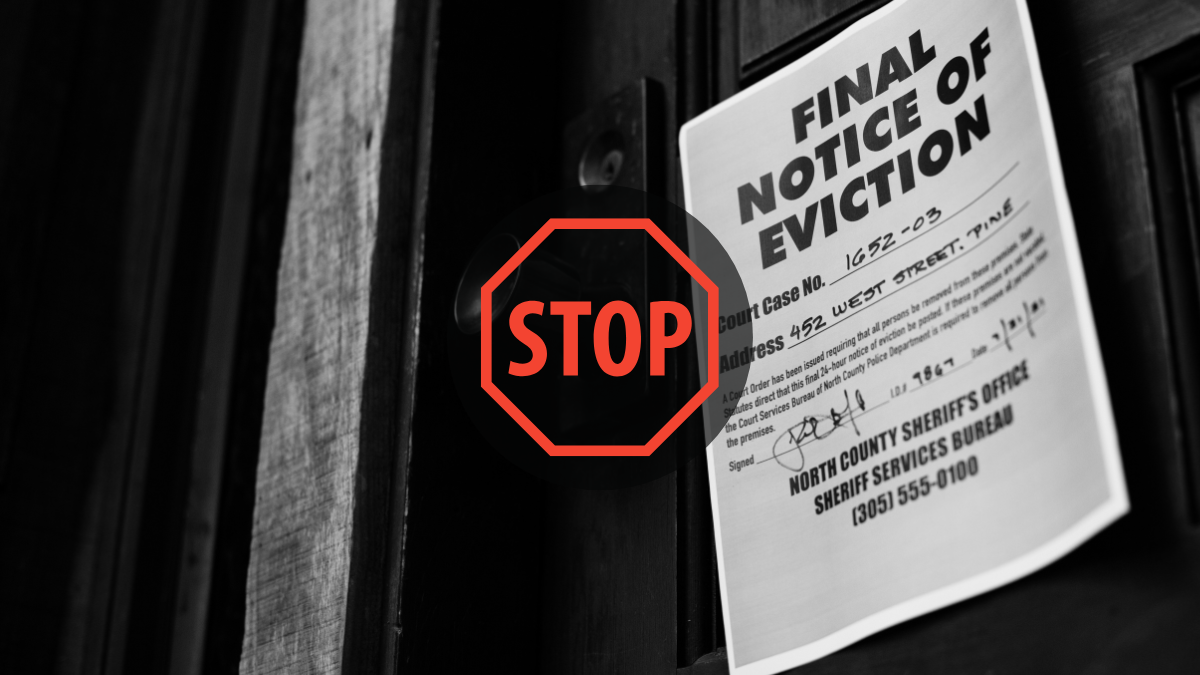Source: The News & Observer
Two Democratic state lawmakers from western North Carolina are calling for a pause on evictions as their constituents continue to recover from the devastating floods brought on by Hurricane Helene in late September, The News & Observer reported.
“People need to know that they’re safe in their house, at least for the time being, until we can get things back on track,” said state Rep. Lindsey Prather (D-Buncombe).
Prather and state Sen. Julie Mayfield (D-Buncombe) initially asked fellow lawmakers for a rent and foreclosure moratorium. When that faced too much opposition from the Republican supermajority, they called for a moratorium on evictions instead.
“Otherwise, we’ll have lots and lots and lots of people getting kicked out,” Mayfield said. “That’ll just exacerbate an already very difficult situation.”
It’s not just Prather and Mayfield who have asked for help. Tenants, organizers and even a law firm have also reached out to legislators for the same help in ensuring that residents can stay in their homes during the recovery process.
North Carolina Supreme Court Chief Justice Paul Newby and Republicans in the legislature have been mostly silent on the issue.
Gov. Roy Cooper has been pushing lawmakers to pass bigger storm relief bills than they’ve so far been willing to pass and he has made repeated visits – along with state and federal officials – to the areas most affected by Helene.
A spokesperson for Cooper told The News & Observer that the governor would “constantly review the need for additional executive action.” He has called for the legislature to pass $3.9 billion in disaster relief but they have so far only agreed on a $273 million package and most recently an additional $604 million.
Newby’s spokesperson told The News & Observer that he is aware of calls for a moratorium but the chief justice hasn’t addressed it at all.
House Speaker Tim Moore told reporters he’s skeptical.
“I’d need to look at it,” he said. “I certainly wouldn’t want to commit to that. I think there’s a lot of considerations that have to be balanced. But it’s — short answer is, I don’t know. I think there’s going to be a lot of things that come up that we just… don’t know about yet.”
Even for those in western North Carolina who were lucky enough to make it through the storm with minimal or no damage to their homes, Helene’s flooding destroyed water treatment plants that provide clean water, roads that people drive on and businesses that employ residents. According to The News & Observer, around 75% of the buildings in Asheville’s River Arts District were damaged or destroyed, which shut down restaurants and businesses, leaving people unemployed.
In mid-October, tenants from across the mountains met outside the Buncombe County courthouse to demand a moratorium on foreclosures and evictions as courts have reopened and some landlords have begun sending eviction notices to tenants.
Jen Hampton, who works with the WNC Tenants Network, said some people have been left in the difficult position of choosing spending money on rent or spending it on medication that will keep them alive, including one woman who was faced with that exact dilemma.
“She literally had to buy this medication to not die, and doesn’t have her rent money,” she said. “So, she’s terrified.”
These issues have not stopped landlords from acting like it’s “business as usual,” said Madeline Offen, an attorney at Pisgah Legal Services.
“We understand that a lot of landlords are going to still have to pay their mortgages,” Offen said of the calls for a moratorium. “We understand that tenants are still going to be required to pay their rent. But we also know that there is a housing shortage that has been drastically increased by Helene, which is the greatest natural disaster that Western North Carolina has ever seen.”
Though Prather and Mayfield both represent North Carolinians who live in the Helene-impacted areas of the state, they were mostly left out of the loop in the discussions leading up to the latest relief bill that was passed.
As Democrats in a Republican-controlled legislature, the lawmakers said that was a typical experience for them. Though typical, it was not any less frustrating.
“We know that this is going to be months and years of rebuilding,” said Prather. “There’s a big fear among constituents and those of us that live in Western North Carolina that we’re going to be forgotten about.”
When Moore was asked by reporters if Democrats were involved in the process of drafting the $604 million relief bill, he said Republican leadership had “received input from members on both sides of the aisle, but in terms of having members sitting in a room working through it, that really didn’t happen much.”
During the Senate debate over the relief bill, Mayfield said it didn’t go far enough that “speed matters.” She also called for small-business grants, but small-business loans were instead added to the bill.





